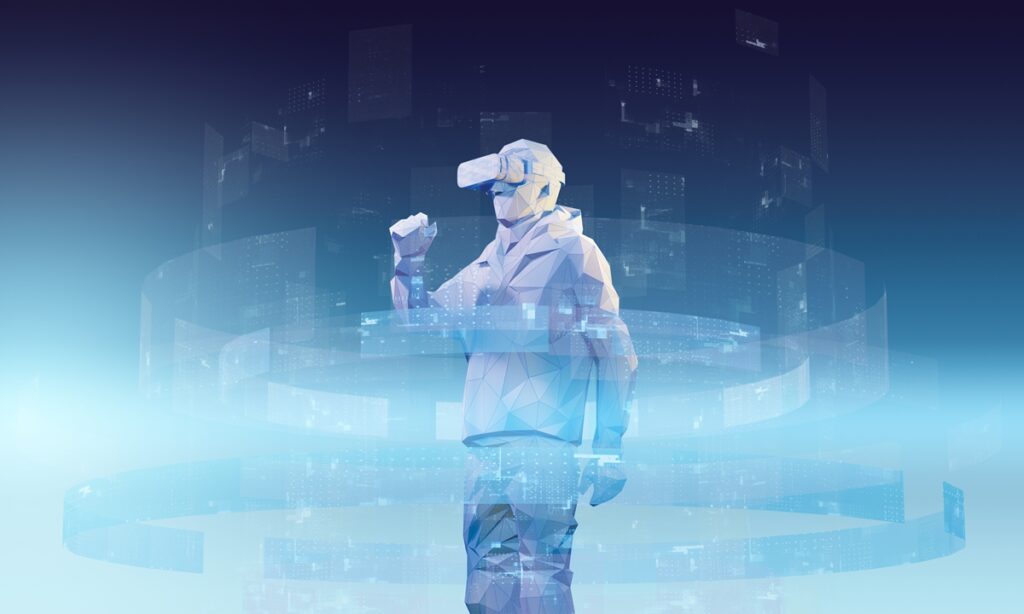Five Chinese ministries including the Ministry of Industry and Information Technology and Ministry of Culture and Tourism issued a three-year action plan from 2023 to 2025 on Friday to boost the innovative development of the metaverse industry, vowing to achieve major breakthroughs in key core technologies and form a globally leading metaverse industrial ecosystem.
Metaverse is an immersive interconnected space where digital and physical worlds merge, a future industry of integrated innovation and application of new-generation information technology, and an advanced form of fusion of digital and real economy. It is expected to lead the development of the next-generation internet and accelerate the upgrading of manufacturing industry to become high-end, intelligent and green, according to the plan.
According to the plan, by 2025, the country aims to make breakthroughs in metaverse technology, industry, application and governance, becoming an important growth pillar of the digital economy, with comprehensive strength reaching the world’s advanced level. It vows to cultivate three to five ecological enterprises with global influence, and form a number of new businesses, models and formats in areas such as consumption and public services.
In the long term, the country will realize major breakthroughs in key core technologies of the metaverse industry and form a globally leading metaverse industrial ecosystem. It will build a mature industrial metaverse, promote the realization of an overall leap in the methods of human production and life as well as form a safe and efficient metaverse governance system and create a healthy and sustainable industrial development environment.
“China’s digital economy has reached a new stage of development, and the digital technologies and platforms accumulated over the years have laid a good foundation for the development of the metaverse,” Wang Peng, an associate research fellow at the Beijing Academy of Social Sciences, told the Global Times on Friday.
At the same time, the metaverse has begun to integrate with our lives and production, and can provide more options for future industrial transformation, Wang added.
In order to achieve the goals, the five ministries developed five major tasks including strengthening the integration breakthrough of new-generation information technology in the metaverse, such as artificial intelligence, blockchain, cloud computing and virtual reality.
In addition, the plan required an accelerated realization of cross-industry collaboration based on the industrial metaverse for manufacturing industries such as home appliances, automobiles, ships, aerospace, major technical equipment and electronic information manufacturing.
The five ministries also vowed to construct metaverse in the cultural and tourism sector, providing products and services such as digital collections and digital human explanations around application scenarios such as cultural venues, tourist attractions and festivals and events.
Wang noted that the plan clearly points out the three core directions for the future development of the metaverse that is, with industrial production as the core, taking into account consumption and public services.
The expert added that the plan also points out the future development method and management system of the metaverse industry, which can effectively promote the industry to better serve the real economy and realize intelligent and digital transformation.
(Global Times)




